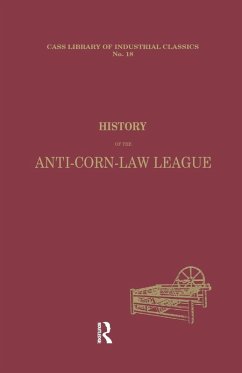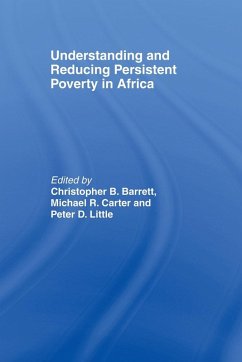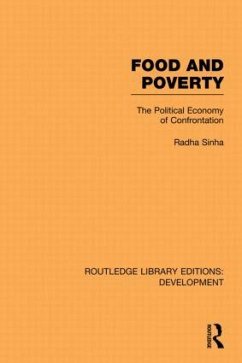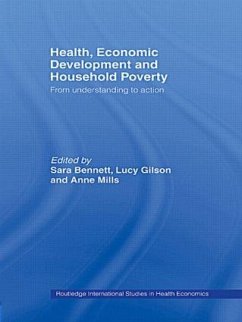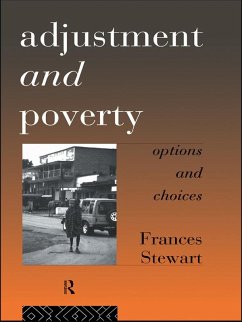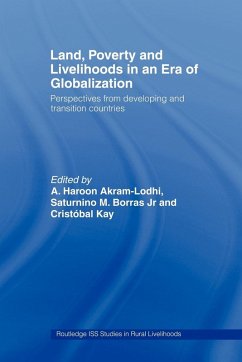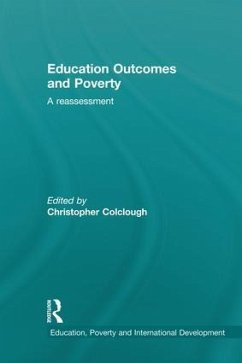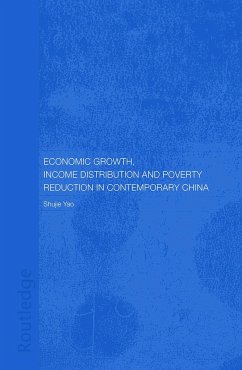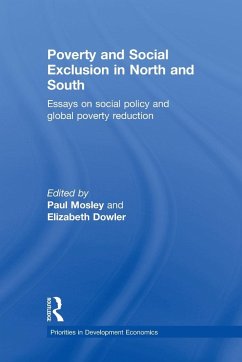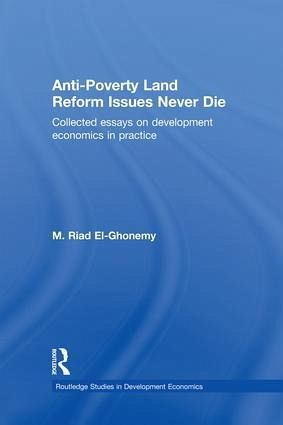
Anti-Poverty Land Reform Issues Never Die
Collected essays on development economics in practice
Versandkostenfrei!
Versandfertig in 1-2 Wochen
60,99 €
inkl. MwSt.
Weitere Ausgaben:

PAYBACK Punkte
30 °P sammeln!
What can we do to unlock the unrealised potential of the hundreds of millions of rural poor and landless workers? The ever-topical central theme in this collection of essays is the mixed role of government and the institutionally regulated market in tackling rural poverty and land distribution inequality. Drawing on over half a century of M. Riad El-Ghonemy's academic and field experience in developing countries across Africa, Latin America, the Middle East and South East Asia, this is a comprehensive record of the late-twentieth century study of and struggle against rural inequality, seen thr...
What can we do to unlock the unrealised potential of the hundreds of millions of rural poor and landless workers? The ever-topical central theme in this collection of essays is the mixed role of government and the institutionally regulated market in tackling rural poverty and land distribution inequality. Drawing on over half a century of M. Riad El-Ghonemy's academic and field experience in developing countries across Africa, Latin America, the Middle East and South East Asia, this is a comprehensive record of the late-twentieth century study of and struggle against rural inequality, seen through the eyes of one of its foremost observers. Containing a balance of in-depth field studies and El-Ghonemy's personal observations from 1952 onwards, this volume provides the basis for discussion and debate on a range of developmental issues. Foremost among these is the appropriate approach both to explain the factors underlying developing countries' rural backwardness, and to enable them to achieve the Millennium Development Goal of halving the incidence of poverty and hunger by 2015. The compelling argument made here is that redistributive land reform, combined with non-farm intensive employment opportunities and investment in education within rural areas are necessary to tackle persistent poverty effectively. Anti-Poverty Land Reform Issues Never Die is essential reading for undergraduate and postgraduate students learning rural development and institutional and development economics. M.Riad El-Ghonemy is Senior Research Associate at the Department of International Development, University of Oxford and Research Fellow at the Department of Economics, the American University in Cairo, and Emeritus Professor, Ein-Shams University, Cairo. He is the author of several publications, including The Political Economy of Rural Poverty, Routledge (1990).





